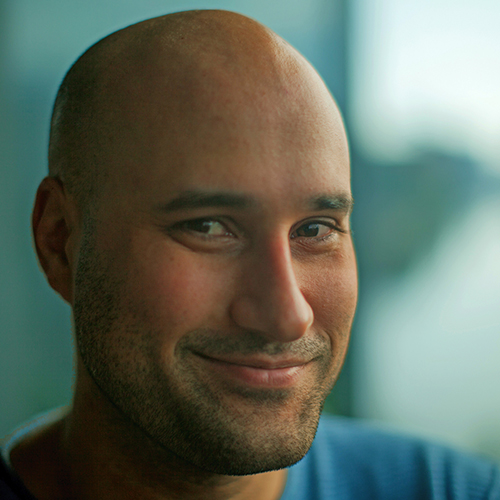James
Presenter
Mental Health.
Oh yeah like researching so like if you don’t have the money to go and get a therapist because it the costly. But you think someone might be narcissistic or they might have depression, anxiety but then sometimes they’re okay you know what what do you do if you can’t afford to go and get an assessment? The Internet’s there but how do you trust the information what what’s the route of finding out that trying your best to diagnose someone if you with limited resources how do you do it?
Richard
Therapist, Counsellor, Psychologist
Mental Health.
How do you diagnose someone? Well I think.
James
Presenter
Mental Health.
Not everyone’s gonna get the DSM.
Richard
Therapist, Counsellor, Psychologist
Mental Health.
I would the DSM yeah this is great big fat book for the diagnosis. If you’ve hit on one of my favourite subjects actually James which is diagnosis itself which I which I on a feeling level I don’t like I don’t like the whole idea of diagnosis. Its I mean diagnosis is a really big psychiatric diagnosis really big industry because it facilitates lots of pharmaceutical big pharmaceutical companies making a lot of money. Because they’ve got a drug for everything.
James
Presenter
Mental Health.
There’s a financial incentive.
Richard
Therapist, Counsellor, Psychologist
Mental Health.
I mean if you and I can invent a new disorder today go I’ve got talking with James and Richard disorder and if we can get it into the DSM.
James
Presenter
Mental Health.
We gonna make a load of money.
Richard
Therapist, Counsellor, Psychologist
Mental Health.
Some pharmaceutical company will come up with a drug will come up with a drug for it and make a load of money and I have no inside information about what goes on between drug companies and doctors but let’s say I’ve I’ve read people people express how suspicious they are about what the relationship is between pharmaceutical companies and health professionals and so is it, is the whole thing done ethically you know I mean only. I read in the newspaper only yesterday on the way down here to London that the doctors someone said I went to see my doctor they said well you’ve got depression take these pills wrote the thing out gave the prescription in a 10 minute assessment.
James
Presenter
Mental Health.
They can’t do it like that.
Richard
Therapist, Counsellor, Psychologist
Mental Health.
So there’s a routine of like 10 minutes assessment you’ve got depression here are the drugs come back see me in six weeks time.
James
Presenter
Mental Health.
Well, I have a doctor who did this to me like I got through the depression at the time comes and goes it’s not as bad as it used to be but within 10 minutes he was doing the same thing. So I had that personally as well and he didn’t he didn’t mention side-effects until I brought it up and then when I looked them up I was like oh my gosh think these are the things I saw at the time: a sex drive that goes away and never comes back depending on the antidepressant. In certain cases you can become murderous, suicidal if you don’t come off them properly and I think that’s when I was like I think there’s a better way to do it, other than antidepressants.
Richard
Therapist, Counsellor, Psychologist
Mental Health.
yeah, now I personally I would not go as far as to say antidepressants don’t have a place and are useless because I’m sure a lot I’m sure a lot of people have said yeah the antidepressants helped. Particularly if it gets them through a crisis point but I think too often antidepressants get in the way of someone seeking help with a therapist that addresses the underlying issues.
James
Presenter
Mental Health.
Well it’s cheaper. So it’s to give someone who comes to the NHS to give them antidepressants than put them on you know two months of therapy or however long it takes.
Richard
Therapist, Counsellor, Psychologist
Mental Health.
So now I want to come on to another aspect of this thing called diagnosis that I don’t like which is nothing to do with drugs which is to do with ultimately personal power and self responsibility now I’m gonna explain what I mean by that. There’s a tendency for people to say I’ve got depression or I’ve got narcissism or I’ve got attention deficit disorder or hyperactivity and attention deficit disorder in fact this word “disorder” is is seems to be multiplying at an enormous rate. This has disorder for everything now.
James
Presenter
Mental Health.
And I also think is it the right word to use.
Richard
Therapist, Counsellor, Psychologist
Mental Health.
Well can we come back to that because anyway yeah so this the diagnosis says I’ve got depression and it’s as though this depression is like a separate item to me see so what let me just I am taking this book for example this represents my depression you see so if I think I’ve diagnose myself as depressed or my my health practitioner has diagnosed that I’m depressed and here’s my depression and I say I’ve got depression I can there’s this foreign object inside me so what do I want to do with the foreign object I want to get rid of it.I want to go look at this horrible depression you know it’s like a disease like measles or some. I want to get rid of it its like having a I don’t know a horrible smelly jumper. You want to get rid of so then you you’ve got this fantasy that you put you know put this depression over there you get rid of it and then you’re whole again then you’re healthy again but I don’t think things work like .That really I think people are in people who would say I’ve got depression actually are in a state of being depressed so it depressed is a state that people are in. So if if I think this is a state that I’m in then maybe I’m got some power to change that state I’m in.
Copyright 2018 ACME Inc – Privacy Policy


Recent Comments